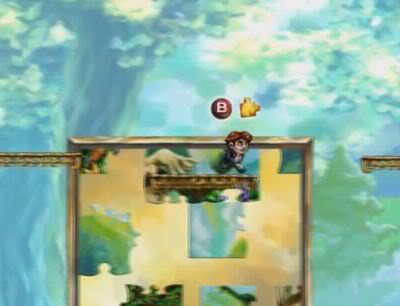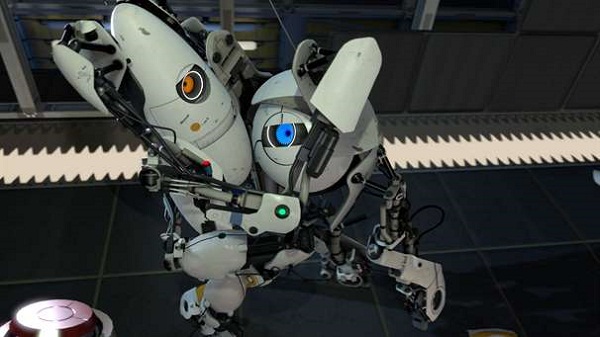This post has not been edited by the GamesBeat staff. Opinions by GamesBeat community writers do not necessarily reflect those of the staff.
Let’s get one thing straight right off the bat. In terms of traditional game design, a puzzle which forces you to "think outside the box" is not a good thing. Sure it might look quite nice down there as a bullet point on the back of your box, but a game based entirely upon such puzzles is going to end up frustrating and excessively difficult.
So what exactly do we mean when we say a puzzle forces you to think "outside of the box?" Usually it means solving a problem in a way it has never been solved before. You might seek to raise tax revenues by lowering taxes (see the Laffer curve) or perhaps get people to drive slower to reduce journey times (think less accidents).
The reason such thinking works in real life is because the real world — in terms of the language of video games at any rate — is entirely procedural, whereas even the most complex games are based around simple rules. What this means, in essence, is that every solution to a puzzle in a game has to have been programmed by the developer.
 |
|
So, you can use the painting to create a platform. Yeah…thanks for letting me know that was possible, Jonathan |
This is why thinking outside of the box is simply impossible (or at the very least challenging) when within a video game. You’re not really doing this; you're trying to think of the obscure solution that’s been programmed in. The term "out of the box" implies creativity and a refusal to play by the rules. What it actually comes down to is little more than guesswork.
Therein lies the difference between a good and bad puzzle game. A good puzzle game will show you exactly the rules you need to solve every one of its challenges. A bad one will let you stumble across them yourself. If you ever find yourself screaming, "I had no idea that was even possible!" after solving a puzzle, then you’ve probably experienced this. What distinguishes a good puzzle game from a great one then is how subtly it manages to do this.
This is exactly what makes Portal 2 a fantastic game. It is based around a very small number of mechanics which are each individually taught to you. Then, they’re combined to create the fiendish puzzles that the game is now known for.
You may not realize it as you play, but Portal 2 is decidedly formulaic in this regard. Each mechanic gets its own puzzle dedicated to it, and no other elements are around to complicate the learning process. You’re thus forced into working out how this mechanic works before you can proceed, and very little room for misunderstanding is allowed.
This effective teaching strategy is what allows Valve to make the puzzles so complex without having to worry about frustrating the player. They know every gamer has the tools at their disposal to solve their problems using logic, so they're not forced to employ mechanics that they didn’t know about.
It’s a mark of just how tightly the game is made that you don’t even notice this is being done until it slips up just the tiniest amount. This moment in my game occurred when I first encountered the white gel. It was possible to get through the "white gel lesson" without understanding how it worked. So, when the time came for me to use it in a real puzzle, I had little idea what it actually did. As a result, this was the only frustrating half hour I experienced with the game.
Portal 2 manages to hit that sweet spot few puzzle games manage to find: hard enough to challenge, but easy enough to keep you from running to GameFaqs (or MyCheats…I guess). This spot is especially hard to find for puzzle games because of the uniqueness of the genre.
If you think about it, you can’t really get better that much better at solving puzzles through practice. If you get chewed up and spat out by a game like Halo, chances are you’re just not quick enough on the trigger, or you need to learn which weapon to use where. You're going to learn both of these skills whether the game takes the time to teach you or not. If you get stuck in a puzzle game though, and chances are you’re going to do little more than bang your head against a wall for a spell.
So, it’s a testament to the design talent at Valve that it manages this balancing act with such effortlessness. Portal 2 might be hilarious, atmospheric, and damn good looking, but at it’s core it’s an insanely polished puzzle game that’s impossible not to complete.
This week, Jon finally got sick of having some pesky Republican stealing his top spot on Google and decided to chuck an "X" in his name for the sake of uniqueness. He might also have done this because he secretly thinks Xs are the coolist thing since MiniDisk players. Mostly it's the search thing, though.


